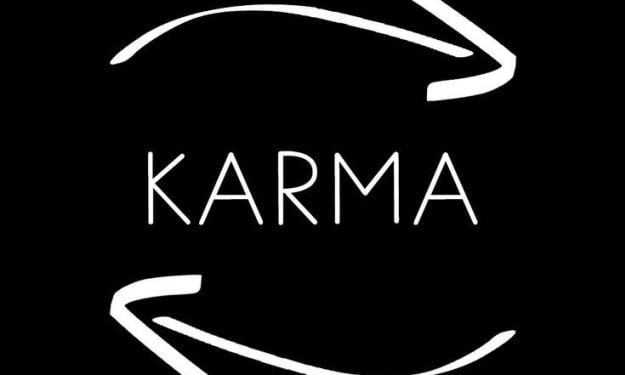Murder, Mirrors & Morgan Harper Nichols
How the letter 'M' has reminded me of the joy that lies in taking small steps.

A Note: This piece contains content relating to disordered eating and mental illness.
1. Murder
I've never been much of a crier. Even as a kid, my eyes were, for the most part, dry. Tears and tantrums, they were my brother's department - youngest child syndrome and all that. I joked, I giggled, and on the occasions when something hit an inch too close to home, I would quietly wander away and sit, alone with it all bottled up inside of my head.
Recently, however, dry eyes have seemed in short supply. Each day seems to bring with it a new hurdle, another uncertainty, a fresh sense of 'not knowing'. This current season of chaos we've found ourselves living through appears to have jabbed at a personal pressure point I didn't realise I had. I've misplaced the plug for my emotional bathtub and - try as I might - I can't keep the water from gushing.
I hate it. I don't know what to do with all of this wet.
Becoming an apparent tear-machine has brought with it many surprises, but perhaps the one thing that has surprised me more than almost anything else is where I'm most likely to break down. Currently, my car holds that coveted, Number 1 spot. And it was in my car, as I sat curled up behind the steering wheel bawling my eyes out of my head, that I decided to write this article.
Often, when I'm in the midst of a vehicular waterworks session, I'll listen to an episode (or twelve) of My Favorite Murder. This true crime/comedy podcast, hosted by Karen Kilgariff and Georgia Hardstark, may seem like a strange choice of emotional balm. But the fact of the matter is that its quirky combination of humour and frank dissection of reality has seen me through some pretty dark days.

When I was first introduced to this podcast, I was a fresh-faced high school graduate with very little idea of how the wider world actually functioned. I've always had a somewhat-morbid fascination with true crime, and for as long as I can recall, I've relied upon humour as a coping mechanism. And yet, it's not been until recent times that I've truly come to appreciate the authenticity and empathy with which both Karen and Georgia put themselves out there, week after week, for the countless 'murderinos' who tune in to the podcast.
The episode I put on in this particular instance was Episode 166: a 'maxisode' in which Karen and Georgia address the impact that COVID-19 has had upon their lives - professionally as well as personally. As I listened to them riff about the intricacies of Skype podcasting and the difficulty of accepting that their respective pets are, in fact, assholes, I was struck by the realisation of how far My Favorite Murder has come since that first episode was released, all the way back in 2016. From socially-awkward acquaintances discussing Ted Bundy on a living room couch to best friends and co-creators of one of the most successful podcast networks to date, Karen and Georgia have touched the lives of so many people - myself included - in a way that I'm not certain they'll ever truly understand. Both women have overcome many demons throughout their lives: their dual auto-biography Stay Sexy & Don't Get Murdered details this unflinchingly. In the book, Karen writes, "You’re currently living... And if you don’t wake up stoked to be you, figure out the first step you can take toward that life you want. Once you’ve taken that first step, then figure out the next step, and so on. It might feel like a long journey (it is), but for me, that was the most important part."
It's true: murder may seem an odd topic to find joy in. But with every episode of My Favorite Murder I listen (or re-listen) to, I'm reminded of how Karen and Georgia's decision to make something out of their own personal messes has resulted in the creation of a global community - one in which I've found myself, gallows humour in tow, pushed to confront my own mess, and pushed to find that first step.
2. Mirrors
Note: this section contains discussion of disordered eating and mental illness.
Perhaps one of the reasons I regularly dissolve into driver's seat tears is that, as I write this article, I'm currently preparing for hospitalization. Recently, I made the excruciating decision to undertake a period of inpatient treatment in a bid to win my personal war against Anorexia Nervosa. It's been an uphill battle, and there are few things that steal life's joy quite like an eating disorder.
I know that twenty-three-year-old Korey Baruta would agree with me. I happened upon her Instagram account @storyofkorey in late 2019, and one of the things that first caught my attention was the reoccurring presence of mirrors in her posts. For many who struggle with disordered eating (myself included) mirrors are the enemy. The mirror is the one who tells all the lies, the one who whispers that, maybe, if you allow yourself to disappear just a little more, you'll be happy. And so, it was difficult for me to understand how Korey can stand in front of her mirror, complete with a Snapchat flower crown, and genuinely smile.
As it turns out, I had only to read this image's accompanying caption to gain a touch of insight. "So who are you really?" Korey asks. "The truth is that people with eating disorders are never satisfied with their weight. And they will continue to obsess about the number on the scale until they become so sick they disappear from existence......UNLESS they can learn where their true value lies. This isn't easy because for so long they have measured their worth in their appearance... Well you are NOT your appearance."

In the same way that a podcast about murder may seem a strange source of joy, I understand why some might struggle to see why I have included this particular of Korey's posts. Certainly, it is a difficult sight to take in. I'm grateful that I've never been quite so ill as Korey was when she took the first photograph, and it serves as a reminder of where disordered eating can lead. Take the left-hand panel at face value, and it presents a rather bleak image. Place the two panels side-by-side, however, and the whole becomes so much more.
"I am still in recovery and I still have days where it is really hard," Korey once admitted in an interview. "But I realise now having a bad day does not mean it is going to be a bad life." From my perspective, this post documents a journey - one not unlike that which Karen spoke of. This post tells of someone who stared down that mirror and recognised the person they had the potential to become. "People can try their hardest to make you recover," Korey explained, "but it has to come from within you. I’ve learnt that our appearance is not indicative of our worth and that how we look will never change the person we are on the inside." Korey Baruta found the courage to take that first step. And that, above all else, is why this post brings me joy.
3. Morgan Harper Nichols
In an era of slow-motion motivation and Instagram feeds stacked with 'inspirational' quotes, I've often found it difficult to differentiate between what is actually helpful and what is, in reality, hot air veiled by pretty typography. That being said, however, there is one Instagram feed I can rely upon, without fail, to provide a sense of genuine, far-reaching hope.
Morgan Harper Nichols is a Christian musician, author and artist. Every day, she adds a new addition to her Instagram feed, and whether it be an extract from an original song, an expertly-traced extract of scripture, or a poem placed against a hand-painted backdrop, her words bring comfort - to me, at least - in a way that few other 'inspirational' social media accounts can challenge.
Perhaps this is due to the fact that Morgan doesn't set out to be 'inspirational'. Rather, she sets out simply to be herself. Too often, we compare our lives to the edited, abridged depictions that others share of their own. We take these depictions as reality, as 'real life', and in the process, we forget that everyone has found themselves in the same, less-than-ideal boat of being messy, of being imperfect, of being human. In 2016, Morgan, in the midst of an unsettling career change, penned a poem that would ultimately go viral:
“When you start to feel like things should have been better this year, remember the mountains and valleys that brought you here.”
"I had not written poetry in years," Morgan noted in a 2019 interview, "but this was a rare moment where I felt like I needed to write these words as a reminder to myself." To her surprise, this self-reminder began gaining traction. But as more and more people reached out to her, in search of something more than the standard motivational Monday morning message, the doubt crept in. "I didn’t want to give up, but yet, I had all of these doubts and they were starting to slow me down," Morgan admitted. "But I knew I had to do something to rise above the self-doubt and fears that were holding me back from creating... It has become a daily practice of reminding myself that creating something is so much more than just trying to be clever or successful, but about making something that gives life to how you feel and how others feel."

Unlike so many social media profiles, Morgan's feed isn't filled with visions of perfection, or togetherness. Rather, her poetry and her music and her art are a tribute to a soul still wading through the process of growth. I've often felt the need to be more than who I currently am: to be better, to be successful, to be impressive. Morgan's daily posts, however, remind me that there is quiet beauty in simply appreciating where I am. Her words reinforce the truth that, even if I'm not 'stoked' (to again quote Karen) with who I am today, making it through today is a small step towards tomorrow.
"There’s no one way of doing things, and just because you haven’t seen it done before that doesn’t mean it’s impossible," Morgan pointed out. My journey may not result in the creation of a podcast network, or an online following of thousands, and my small steps may look very different to another's - truth be told, I hope that they do. Yet there is value in those small steps, and that this the one thing that murder, mirrors and Morgan Harper Nichols have in common. Because each and every time somebody takes one for the better, the world - I believe, at any rate - becomes a slightly brighter place.
Interview Sources:
- https://expressdigest.com/korey-baruta-opens-up-about-her-battle-with-anorexia/
- https://au.lifestyle.yahoo.com/anorexic-dancer-korey-baruta-barely-survived-on-one-apple-a-day
- https://iridescentwomen.com/2019/05/14/practicing-generosity-through-words-art-an-interview-with-morgan-harper-nichols/






Comments
There are no comments for this story
Be the first to respond and start the conversation.